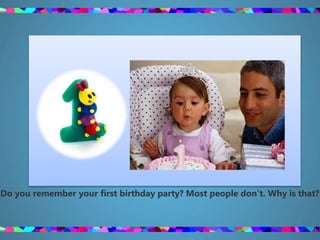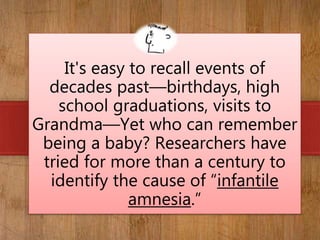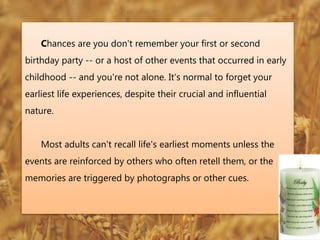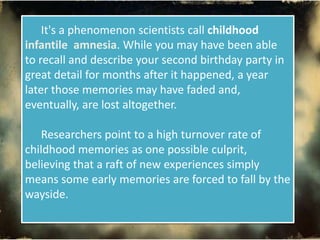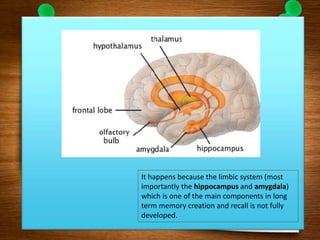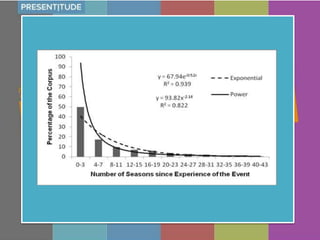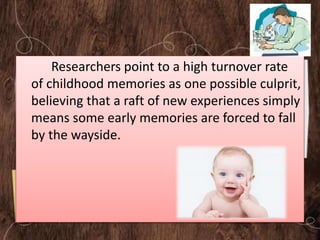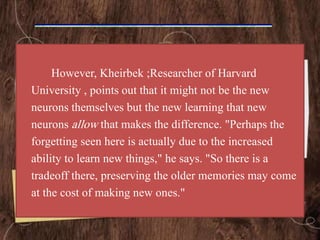This's Why We can't Remember being babies >
- 1. Why can't we remember being babies? Title page Why can't We remember being Babies?
- 2. Do you remember your first birthday party? Most people don't. Why is that?
- 3. WHAT IF… It's easy to recall events of decades past—birthdays, high school graduations, visits to Grandma—Yet who can remember being a baby? Researchers have tried for more than a century to identify the cause of “infantile amnesia.”
- 5. Chances are you don't remember your first or second birthday party -- or a host of other events that occurred in early childhood -- and you're not alone. It's normal to forget your earliest life experiences, despite their crucial and influential nature. Most adults can't recall life's earliest moments unless the events are reinforced by others who often retell them, or the memories are triggered by photographs or other cues.
- 6. It's a phenomenon scientists call childhood infantile amnesia. While you may have been able to recall and describe your second birthday party in great detail for months after it happened, a year later those memories may have faded and, eventually, are lost altogether. Researchers point to a high turnover rate of childhood memories as one possible culprit, believing that a raft of new experiences simply means some early memories are forced to fall by the wayside.
- 7. LAYERS It happens because the limbic system (most importantly the hippocampus and amygdala) which is one of the main components in long term memory creation and recall is not fully developed.
- 9. Researchers point to a high turnover rate of childhood memories as one possible culprit, believing that a raft of new experiences simply means some early memories are forced to fall by the wayside.
- 10. However, Kheirbek ;Researcher of Harvard University , points out that it might not be the new neurons themselves but the new learning that new neurons allow that makes the difference. "Perhaps the forgetting seen here is actually due to the increased ability to learn new things," he says. "So there is a tradeoff there, preserving the older memories may come at the cost of making new ones."
- 11. T H A N K S Z


